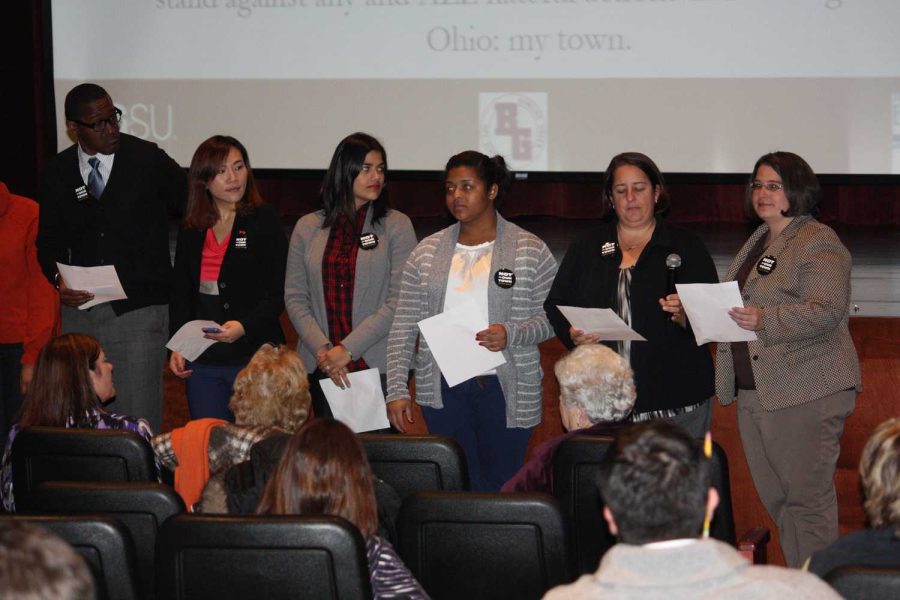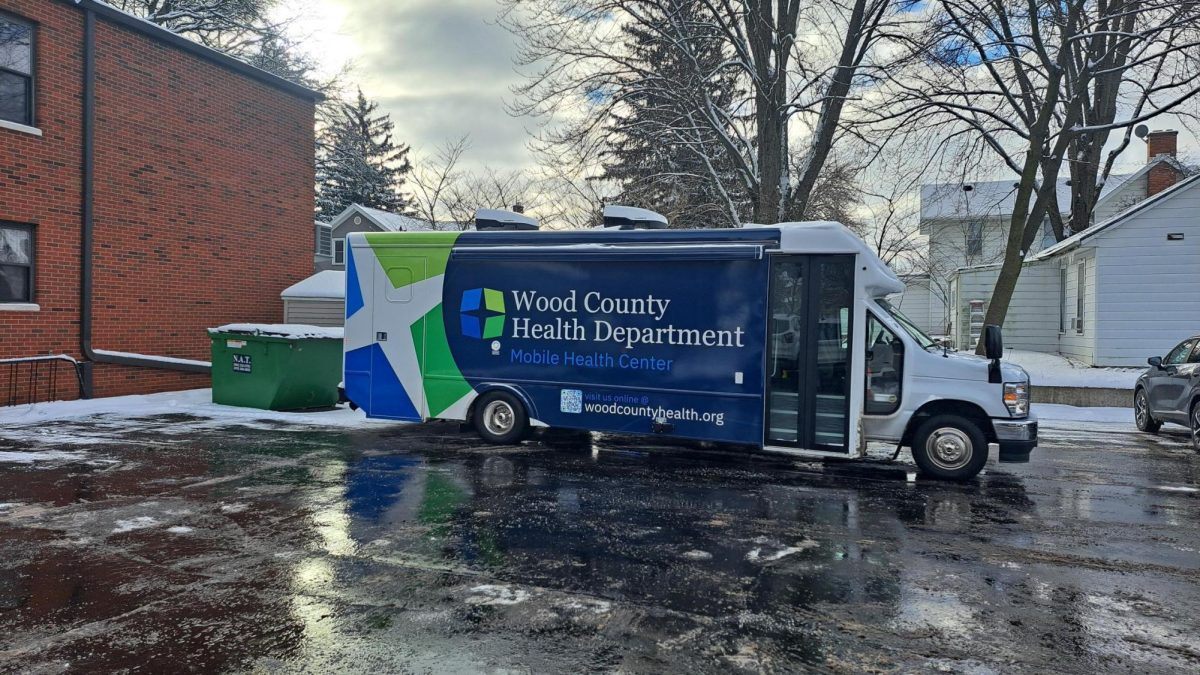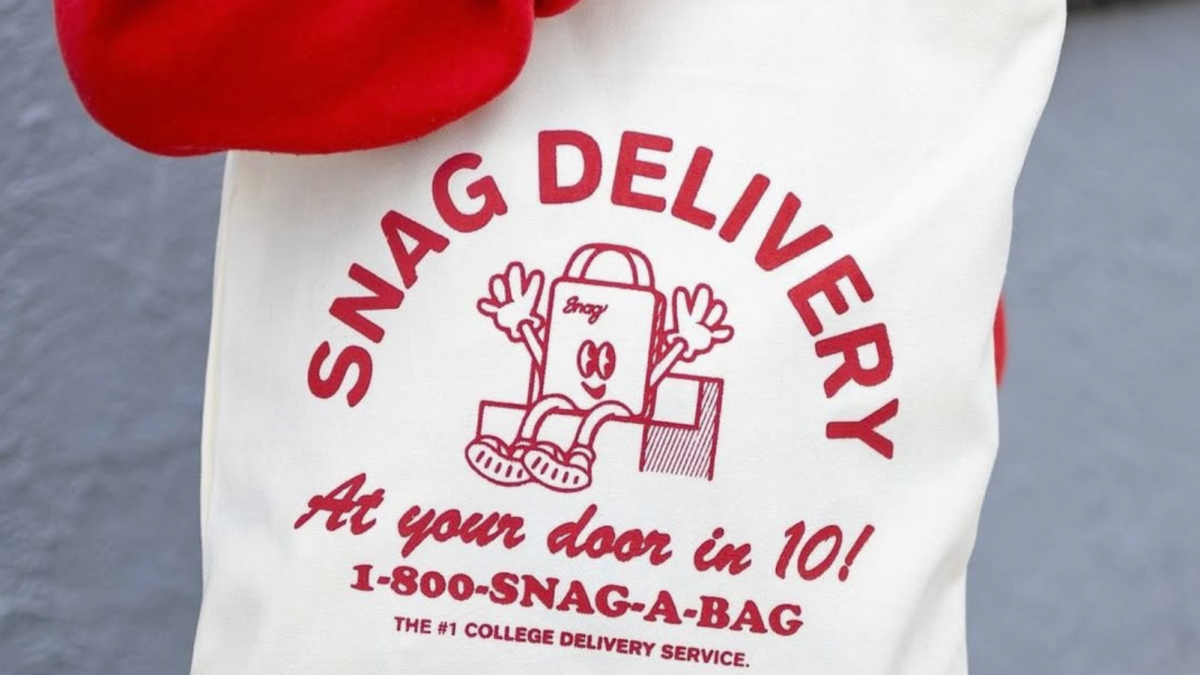University and community members gathered off campus to officially kick off Not In Our Town in the city as part of Not In Our Town Week on Tuesday night.
Not In Our Town, a national campaign to promote diversity and fight intolerance, came to the University this past April. It has continued to grow this semester with increased visibility and incorporation into classes and campus events.
Roughly 100 community and University members gathered in the performing arts center of the Bowling Green Junior High School to listen to speakers and watch a movie.
Speakers included University President Mary Ellen Mazey, Mayor Richard Edwards, BG City School Superintendent Ann McVey and University Equity Officer Vicky Kulicke.
“We need to all come together and celebrate each other and what we can do to change our community,” Mazey said.
She further praised the Not In Our Town campaign as just one of the many ways the city and University work together.
“I think we have a great town gown relationship,” Mazey said. “There’s always this give-and-take between the University and the community.”
Mayor Edwards took time to acknowledge audience members who came to the event, particularly three city council members, Daniel Gordon, Bruce Jeffers and Bob McOmber. Edwards also praised the work of the Human Relations Commission, which he said Not In Our Town is an extension of.
“We’re really fortunate in Bowling Green to have a very strong, very active human relations commission,” Edwards said.
McVey also expressed her enthusiasm for the collaboration between the city and the University.
“We are one community and one community that celebrates diversity,” McVey said. “This country will be strengthened by events such as this.”
Speakers also encouraged audience members to tweet using the campaign’s established hashtags and to sign a pledge card and banner.
The short documentary, Not In Our Town Class Action, highlighted three instances of communities coming together to overcome a hate incident. One story documented the efforts of University of Mississippi students to eradicate ties to the university’s confederate past.
“The film, I find, is very provoking in a very positive way. It really helps to open your eyes up to things that could happen,” Edwards said.
The goal for the night, said Edwards, is both to establish further collaboration between the city and University, and also heighten awareness of discrimination.
“It sharpens all of our senses and heightens our awareness to the potential for problems like this,” Edwards said. “I’m just hoping this is another step in the process of developing a broader perspective of how we can work together.”
Audience members could also submit ideas via index cards for how Not In Our Town can progress.
“The hope is from their suggestions we can build upon that,” said Ray Plaza, associate director of Office of Multicultural Affairs, adding that these suggestions will be considered at the Friday meeting for Not In Our Town. “This is an opportunity to raise the exposure of Not In Our Town, that it wasn’t just an April thing but it’s a broader commitment for the community.”














